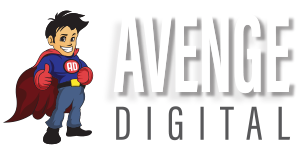
 Many times when we are working with clients, we hear that they are upset with their close rate. Instantly they get flashbacks to a bad vendor, or money wasted, and it gets to the best of agents. The good thing with inbound call programs, like ours, is that you have a TCPA compliant call recording which can be used for quality assurance and training in your agency.
Many times when we are working with clients, we hear that they are upset with their close rate. Instantly they get flashbacks to a bad vendor, or money wasted, and it gets to the best of agents. The good thing with inbound call programs, like ours, is that you have a TCPA compliant call recording which can be used for quality assurance and training in your agency.
According to many agents, (across all marketing channels), it can cost anywhere from $50-75 or more an inbound lead, after adding up all expenses including marketing, tools and salary, and lead vendors. Sometimes after hearing how your team handled these inbound insurance calls, you'll catch things that derail a written and bound policy and missed sales. This is the point where many agents step in.
Whether your team doesn't know how to handle inbound leads or simply don't care to put in the effort necessary, it shouldn't matter. Making sure you spot check your producers is key in maximizing your returns.
When a new client calls for a quote, producers need to view this as an opportunity to help someone and gain a new client. Mishandling these opportunities leads to squandered sales and wasted effort. This is why your staff must make a conscious effort to take advantage of every inbound opportunity your agency receives. How your team handles each and every quote is a direct reflection on you and your agency as a whole.
Below is outline of the standard many agents we work with hold themselves accountable to:
1) Using the Script Until You Don't Need To
Phone scripts don’t have to be complicated or long to be effective. Every time we answer, every one should use the following script:
“Thank you for calling (Your Insurance Agency), this is <insert name>, are you looking for a (product type) quote today?”
This script is simple, direct and effective by stating who you are and your intent to provide value, as well as making your inbound caller feel comfortable speaking with your agency. Some lead vendors will have additional scripting to help process your calls more efficiently, so always ask if the provider you are using has any such resources.
It's always helpful to keep that script handy and memorized until you don't need it anymore. Having a strong script framework will help build your teams' confidence!
2) Enthusiasm is Key
Quoting new business is a large part of how you grow your agency. You never want to give prospects the impression their request for quote is an obligation and an easy way to do this is to show enthusiasm in your voice, and making it sound like you LOVE quoting new business will be your ticket to success.
There is nothing worse for the reputation of your agency than a client getting a feeling of you being bothered, bored, or too busy. I have had some of my team members in the past put mirrors on their desk so that they can see themselves talking on the phone. You'd be surprised at how you can actually hear someone smiling on the phone. Don't believe me? Try it!
You want prospects to feel confident in their decision to work with you. This begins by speaking clearly and with authority. They took the time and effort to call in for a quote, and expect the same consideration.
3) Build Rapport Early
Establishing a relationship begins at the beginning of the conversation. This is how to retain clients long into future. Too often producers move directly to information gathering, and if it doesn't immediately match up with what you're looking for. then they assume it's a bust call. This is the wrong way to look at it!
Efficiently collecting pertinent information and delivering timely policy quotes is vital to your success in the modern marketplace, but if this is all you do, then your services are no different than that of an online only carrier. What makes your agency special is making your clients feel special, welcome, and taken care of by a trusted advisor.
How do we know what experience our customer wants?
It starts with building rapport through follow-up questions. Asking thoughtful follow-up questions show a deeper level of caring most customer will not experience with other insurance providers.
Here are a few examples:
Initial question: “Are you looking for an auto quote?”
Follow-up questions:
- “Do you have any additional cars to quote, as this could save you money?”
- “Did you know that you can save some money if you bundled your auto policy with a homeowners or renters policy?”
The connection established through follow-up questions builds trust and respect for your agency.
4) Set Realistic Expectations
This has been stated time and time again across many mediums but much of distrust and perceived commoditization of the insurance industry can be tied back to miscommunication of expectations.
It’s imperative that agents and producers establish early in the quoting process a set of expectations around the quoting process.
Each insurance buyer is going to carry with them a set of expectations based on their prior experience and you have to assume that experience was less than stellar or they’d still be using their prior provider.
With each new inbound insurance lead or call, establish their current baseline understanding and expectation of the insurance buying process and then realign those expectations based on the realities of their current situation and insurable interests.
When handling inbound insurance leads, properly setting expectations from the start is often the difference between adding new business revenue to your agency and wasting time.
5) Build a Team that is Solution Focused
LSP's and producers shouldn't just be gatekeepers, but rather tour guides on the path to insurance solutions. On this path, it's easy to find obstacles to success; things like no prior coverage, a tough accent, someone shopping for a specific carrier because they saw something on TV, or just price driven consumers.
The fact is, inbound insurance leads call us because they have a problem. For your agency to thrive, you must be the solution they are looking for.
Regardless of the circumstances, help them feel welcomed and confident in their decision to call in the first place. It doesn’t matter much you have to do, how tired you are or how many times an “account like this one” didn’t work out.
The insurance buyers who call through an inbound vendor are in need help.
Take ownership for finding a solution.
Ask the right questions, establish rapport, be enthusiastic and do everything you can to make working with your agency easy.
Then follow-up, follow-up and follow-up some more. Following up as someone concerned about finding the best solution for the consumer is the one who will ultimately win the business in the end.
Tell us what you think! What do you do in your agency to maximize returns? Have a story to share about how you turned an under--performing producer into a superstar? We want to hear from you!






